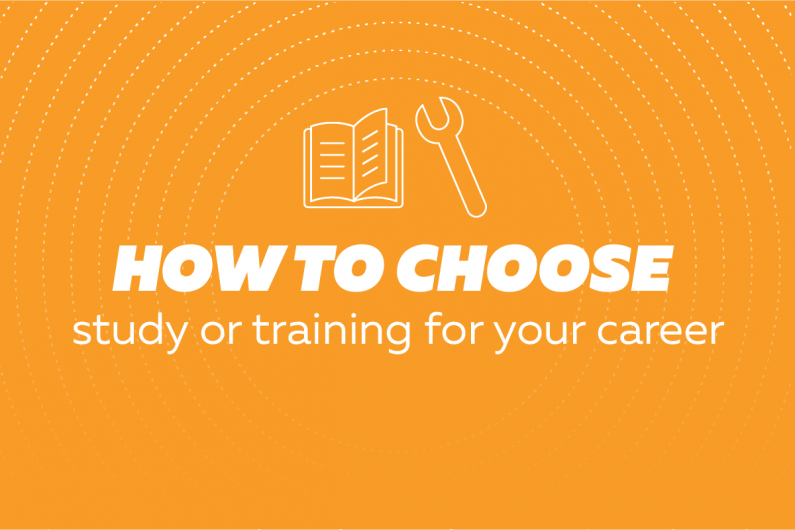English
How to choose study or training for your career

Tips on choosing the right study or training for your career.
What's on this page?
Consider what qualification you'll need
Some jobs have specific pathways. For example, if you want to become a physiotherapist you must have a Bachelor in Physiotherapy degree.
Other jobs may have more than one pathway. To become a food technologist, it's useful to have a degree in either food technology, food science or food engineering.
If you're interested in an industry but aren't sure which job you'd like, there may be different entry-level jobs with different entry requirements. For example, a career protecting the environment may be important to you. To become a ranger either a Level 4 certificate or a degree may be useful, depending on the entry-level job you want.
Many jobs need an NZQA-approved qualification, but some may accept qualifications from non-approved programmes.
Consider what level of qualification you'll need
Your qualification may affect the type of entry-level job you get and how much you earn.
Ask yourself:
- What type of qualification will get you the job you want?
- How will your qualification support your financial goals?
- Is the qualification recognised by NZQA?
I know what I want to study
If you know what you'd like to study, you may have to choose between different training providers and the type of qualification you'd like.
I know what job I want but don't know what to study for it
If you're interested in a job or industry but not sure what to study for it, use the job profiles to find out what subjects and qualifications are useful.
How one student got into a trade apprenticeship
Liam Huse-White was interested in a trade job – then his school rang him with an opportunity to take an apprenticeship 2.26 mins
Find out how your qualifications will help you
It's useful to know how the qualification you're interested in may have helped other people.
Key Information for Students can help you make a decision by giving you information such as how much people with a qualification usually earn, how many are employed and how many are still studying.
Research course providers
Once you know what type of qualification you'd like, choose where you'd like to study.
Education Performance Indicator (EPI) reports can give you information about course providers.
NZQA has information about what to consider when choosing an education provider.
I'm interested in a job I haven't studied for
One job can be a pathway to another one within a workplace or industry.
You may be able to get micro-credentials for skills you’ve already developed, or there may be a micro-credential you can do which could help you move into a new job.
You may be able to transfer the personal and technical skills you develop doing one qualification or job to other jobs.
Talk to employers to learn what skills they’re looking for and find out if they’d be interested in your skills.
Updated 5 Dec 2024